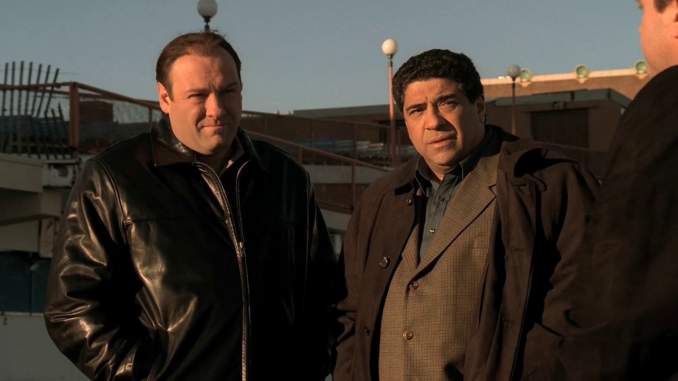
The Sopranos remains a cornerstone of television history, and its third season is no exception. With gripping storytelling and complex characters, Season 3 captivates viewers with themes of loyalty, betrayal, and the weight of choices. So, let’s break down the season’s ending and explore how it perfectly encapsulates the series’ brilliance.
The Setup: A Season of Turmoil
As Season 3 unfolds, Tony Soprano, masterfully portrayed by James Gandolfini, faces an array of personal and professional challenges. Following the death of his mother, Tony finds himself grappling with his complicated feelings and seeking solace in therapy with Dr. Melfi. This season not only dives deep into Tony’s psyche but also introduces new tensions that elevate the stakes for the DiMeo crime family.
Key Players in Season 3
- Tony Soprano: The conflicted mob boss balancing family life and criminal enterprise.
- Dr. Melfi: Tony’s therapist, dealing with her own trauma.
- Carmela Soprano: Tony’s wife, increasingly frustrated with their turbulent marriage.
- Jackie Aprile Jr.: A young mobster whose ambition leads to disastrous choices.
- Ralphie Cifaretto: A volatile soldier causing chaos within the ranks.
- Christopher Moltisanti: Tony’s protégé struggling with loyalty and ambition.
The Climactic Finale: Jackie Jr.’s Demise
The season finale serves as a fitting culmination of the tensions that have built throughout the season. It all boils down to Jackie Aprile Jr., who finds himself on the run after a botched robbery. Calling Tony for help, he’s met with cold pragmatism; Tony refuses to intervene, demonstrating the harsh realities of mob life.
A Web of Betrayal
Tony’s decision is multifaceted. On one hand, he feels a familial connection to Jackie due to his late father, but the blood bond is overshadowed by the reality of Jackie’s reckless actions. Ralphie, who had suggested the ill-fated robbery, manipulates the situation to ensure Tony’s hand remains clean, while he himself is emotionally involved with Jackie’s mother, Rosalie.
This moment encapsulates the moral ambiguity that The Sopranos is famous for. Tony, embodying the classic mob boss archetype, must choose between familial loyalty and the survival of his crime family. In the end, it’s Vito Spatafore who carries out the execution, shooting Jackie Jr. in the back of the head, solidifying the grim fate that awaits those who cross the line in mob life.
The Aftermath: A Family in Mourning
Jackie Jr.’s death sends shockwaves through the Soprano family. The narrative takes a poignant turn during Jackie’s wake, where the duality of mob life is on full display. Meadow, deeply affected by her boyfriend’s death, represents the innocence lost amidst the brutal reality of her family’s lifestyle. As she storms out of the funeral, her turmoil underscores the emotional weight of the decisions made by those around her.
Uncle Junior’s Resurgence
Meanwhile, Uncle Junior’s unexpected revival after his battles with cancer and law enforcement adds another layer to the narrative. His performance of “Core n’grato” during the wake brings a bittersweet moment to an otherwise tragic event. The juxtaposition of joy and sorrow mirrors the series itself—often blending humor with tragedy, making the emotional beats hit harder.
The FBI’s Ongoing Pursuit
While the Soprano family grapples with loss, the FBI is regrouping, seeking new strategies to infiltrate the DiMeo family. Their plan to use Christopher as a potential informant highlights the constant cat-and-mouse game between law enforcement and the mob. The introduction of an undercover agent, Debra, who poses as a friend to Adriana La Cerva, is a clever maneuver that showcases the FBI’s tenacity.
This subplot enriches the narrative, creating tension as fans know the risks involved in both the mob and the law. Adriana, caught in this web of deceit, becomes a pivotal character whose decisions could have grave consequences for herself and those she loves.
The Emotional Fallout
As the season concludes, viewers are left with a haunting sense of what it means to be part of the mob. Tony’s stoic acceptance of Jackie Jr.’s death and the ensuing funeral reflect the harsh realities of loyalty in the criminal world. The emotional turmoil that pervades the finale is a testament to the series’ ability to delve into the complexities of human relationships.
Meadow’s Disillusionment
Meadow’s reaction to the events serves as a powerful commentary on the generational divide within the Soprano family. Her idealism clashes with the harsh truths of mob life, pushing her further away from the life her father leads. As she escapes into the night, it symbolizes not only her disillusionment but also the struggle many characters face in reconciling their desires with their realities.
Conclusion: A Legacy of Complexity
The ending of The Sopranos Season 3 is a masterclass in storytelling. It highlights the moral complexities of the characters, the harsh realities of mob life, and the emotional turmoil that ensues when personal relationships are intertwined with criminal enterprises. The tragic fate of Jackie Jr. serves as a grim reminder of the consequences of choices made within this world.
Ultimately, The Sopranos continues to resonate with audiences because it captures the multifaceted nature of human experience—where love and loyalty coexist with violence and betrayal. The series sets the stage for even deeper explorations in the seasons to come, solidifying its place in the pantheon of great television.
